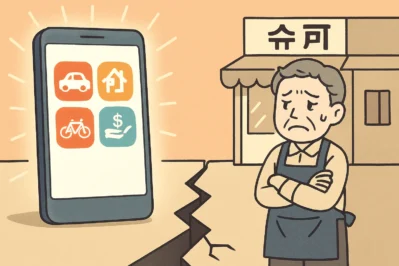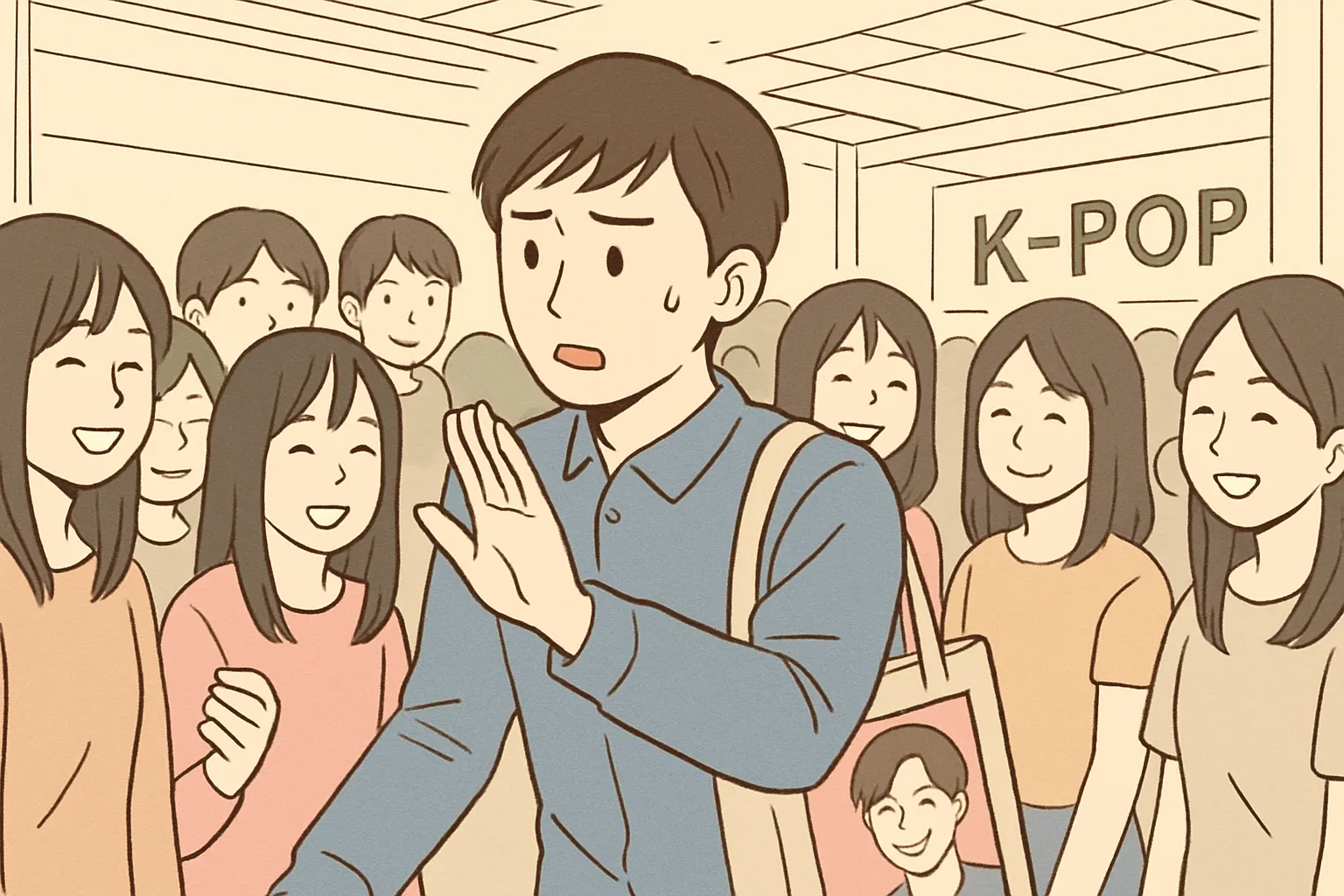Beyond Convenience: How to Debate the Sharing Economy in Korean
Hello! It’s your favorite Korean upgrade kit, Maeil Hangeul, here to level up your language skills!
Today, we’re diving into a really interesting and important topic: the sharing economy. You probably use services like Airbnb, Uber, or shared electric scooters. They’re super convenient, right? But lately in Korea, there’s a growing debate about their hidden problems. We’re going to learn how to talk about these complex issues, so you can express your opinion, understand the news, and have deeper conversations in Korean. Ready to sound like a savvy social commentator? Let’s go!
Core Expressions You Need to Know
Here are three key phrases to help you discuss the pros and cons of the sharing economy like a native speaker.
1. 부작용 (Bujagyong)
- Pronunciation [Romanized]: Bu-ja-gyong
- English Meaning: Side effect; negative consequence; adverse effect.
- Detailed Explanation: You might know this word from medicine (the side effects of a drug), but it’s used much more broadly in Korean. It refers to any unintended negative outcome of a policy, technology, or social phenomenon. It’s the perfect word to use when you want to say, “Yes, it’s convenient, BUT…” It’s a neutral, slightly formal word suitable for both writing and speaking.
2. -을/를 둘러싼 논란 (-eul/reul dulleossan nonlan)
- Pronunciation [Romanized]: -eul/reul dool-leo-ssan non-lan
- English Meaning: Controversy surrounding… / Debate over…
- Detailed Explanation: This is a fantastic pattern for B2 learners! It literally means “the controversy that surrounds (a noun).” You attach it to the noun that is the source of the debate. It’s commonly used in news headlines and discussions about hot-button issues. Using this will make your Korean sound much more advanced and informed.
- Example: 공유 숙박 앱을 둘러싼 논란 (The controversy surrounding shared accommodation apps)
3. 골목상권 침해 (Golmoksangkwon chimhae)
- Pronunciation [Romanized]: Gol-mok-sang-kwon chim-hae
- English Meaning: Infringement on local/small businesses (literally “alleyway commercial district infringement”).
- Detailed Explanation: This term is packed with cultural context. 골목 (golmok) means ‘alleyway,’ and 상권 (sangkwon) means a ‘commercial area’ or ‘market.’ Together, 골목상권 refers to the small, independent shops and restaurants that define a neighborhood’s character. 침해 (chimhae) means ‘infringement’ or ‘violation.’ So, this phrase is used to criticize large platforms or chains for hurting the small, local businesses that are the heart of a community.
Example Dialogue
Let’s see how these expressions work in a real conversation. Minjun and Sara are talking after their trip to Jeju Island.
A (Sara): 제주도에서 공유 자전거 덕분에 정말 편하게 여행했어. 앱 하나로 다 되니까 너무 좋더라.
(Thanks to the shared bikes in Jeju, we traveled so conveniently. It was great having everything on one app.)
B (Minjun): 맞아, 편리하긴 한데… 부작용도 만만치 않은 것 같아. 특히 그 자전거 사업을 둘러싼 논란이 계속 있잖아.
(Right, it is convenient, but I think the side effects are also significant. There’s an ongoing controversy surrounding that bike business, you know.)
A (Sara): 아, 무슨 논란?
(Oh, what kind of controversy?)
B (Minjun): 그 업체 때문에 동네의 작은 자전거 대여점들이 문을 닫고 있대. 일종의 골목상권 침해라는 비판이 많아.
(They say small, local bike rental shops are closing down because of that company. There’s a lot of criticism that it’s a form of infringement on local businesses.)
Culture Tip & Trend Deep Dive
In Korea, the conflict between new, innovative platforms and traditional industries is a major social issue. You’ll often hear the words 혁신 (hyeoksin – innovation) and 상생 (sangsaeng – coexistence) in these debates.
A famous example was the ride-sharing service ‘Tada.’ It was incredibly popular but faced huge opposition from the taxi industry, leading to legal battles and public debate. News headlines were filled with phrases like “타다를 둘러싼 논란” (The controversy surrounding Tada).
When you see a news story about a new delivery app or accommodation platform, listen for words like 부작용 and 골목상권 침해. Understanding these terms is your key to unlocking the real conversations happening in Korean society today. If you use them, you won’t just be a tourist; you’ll be someone who truly understands the local context!
Wrap-up & Practice Time!
Today we learned how to move beyond simple praise and critically discuss the complex impacts of the sharing economy. You mastered three powerful expressions:
- 부작용 (side effects)
- -을/를 둘러싼 논란 (controversy surrounding…)
- 골목상권 침해 (infringement on local businesses)
Now, it’s your turn to practice!
- Fill in the blank:
- “그 새로운 쇼핑 플랫폼의 등장으로 많은 작은 가게들이 어려움을 겪는 ________이/가 발생했다.”
- (With the emergence of that new shopping platform, the ________ of many small shops suffering has occurred.)
- Your turn! Think about a controversial new technology or service in your country. Try to make a short Korean sentence about it using -을/를 둘러싼 논란.
Leave your answers in the comments below! I can’t wait to see what you come up with. Keep up the great work






